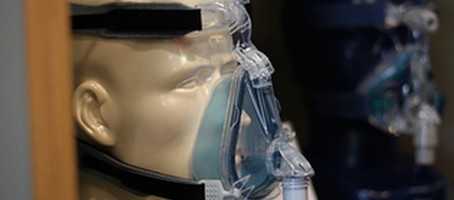Using a device for eight hours a night to treat sleep apnea could improve the blood sugar levels of people with prediabetes.
Sleep apnea and prediabetes
Sleep apnea, a common sleeping disorder, is linked to people with prediabetes and can be a sign that diabetes is developing.
Prediabetes increases the risk of diabetes, which can lead to cardiovascular disease, while the interrupted sleep caused by sleep apnea can decrease the body’s ability to regulate blood glucose levels. Obesity makes diabetes and sleep apnea more likely.
Researchers at the University of Chicago suggest that using a continuous positive airway pressure (CPAP) mask can help people with prediabetes.
The CPAP mask helps people breathe better in the night by blowing a constant pressure of air into the lungs, which connects through a tube and face mask.
39 middle-aged volunteers were recruited who were either overweight or obese. They all had prediabetes and sleep apnea. Two-thirds received CPAP treatment, wearing the device for eight hours a night, while the other 13 took a placebo 30 minutes before bed.
The glucose metabolism of participants was monitored, as well as their blood pressure and levels of the stress hormone noradrenaline.
Improved blood sugar levels
Following two weeks of treatment, blood sugar control improved for those in the CPAP group. The group also demonstrated better insulin regulatio, lower levels of norepinephrine – a stress hormone – and reduced blood pressure.
“Our study showed that CPAP in patients with prediabetes can lower their risk of progressing to diabetes when CPAP is used for eight hours, a full night’s sleep,” said lead author, Sushmita Pamidi, MD, a former fellow at the University of Chicago. Pamidi is now on the faculty at McGill University, Canada.
“Although eight hours of CPAP per night can be difficult to achieve in real-life, our results should provide a strong incentive for anyone with sleep apnea, especially prediabetic individuals, to improve adherence to their treatment for cardio-metabolic risk reductio,” Pamidi added.
The results of this study were published in the American Journal of Respiratory and Critical Care Medicine.
What's new on the forum? ⭐️
Get our free newsletters
Stay up to date with the latest news, research and breakthroughs.







